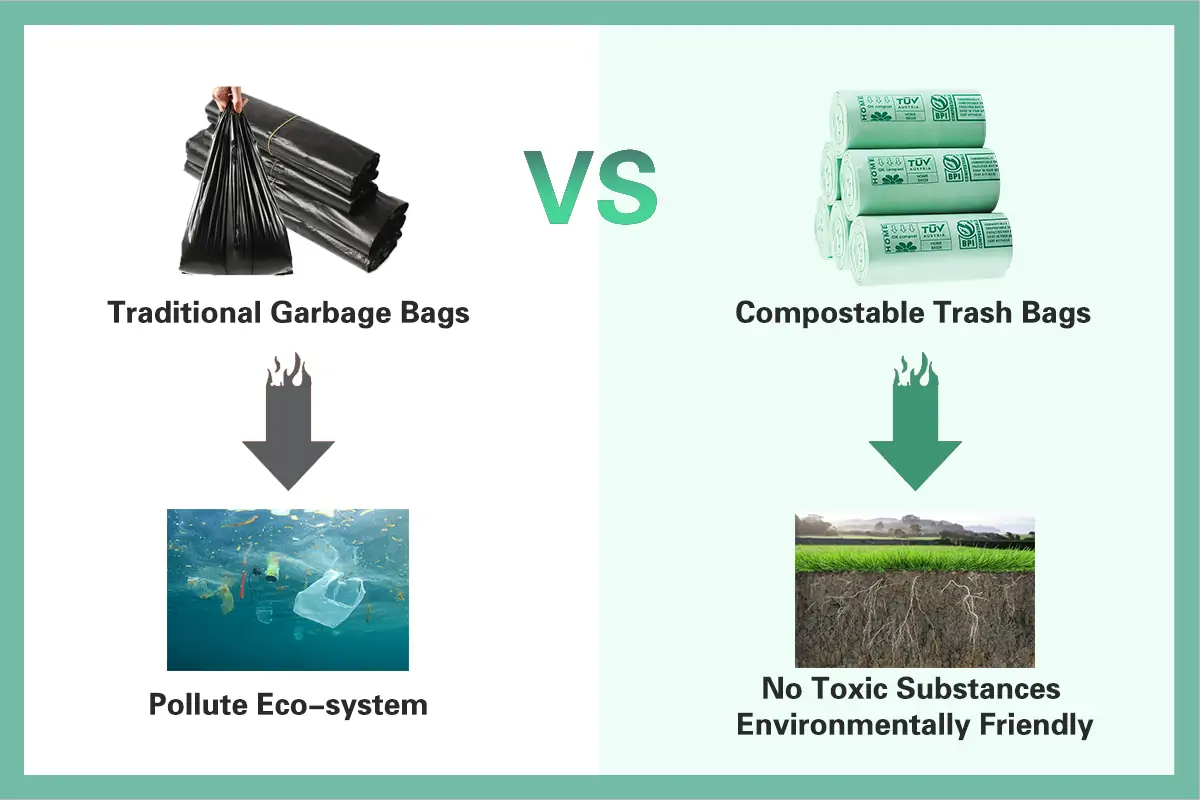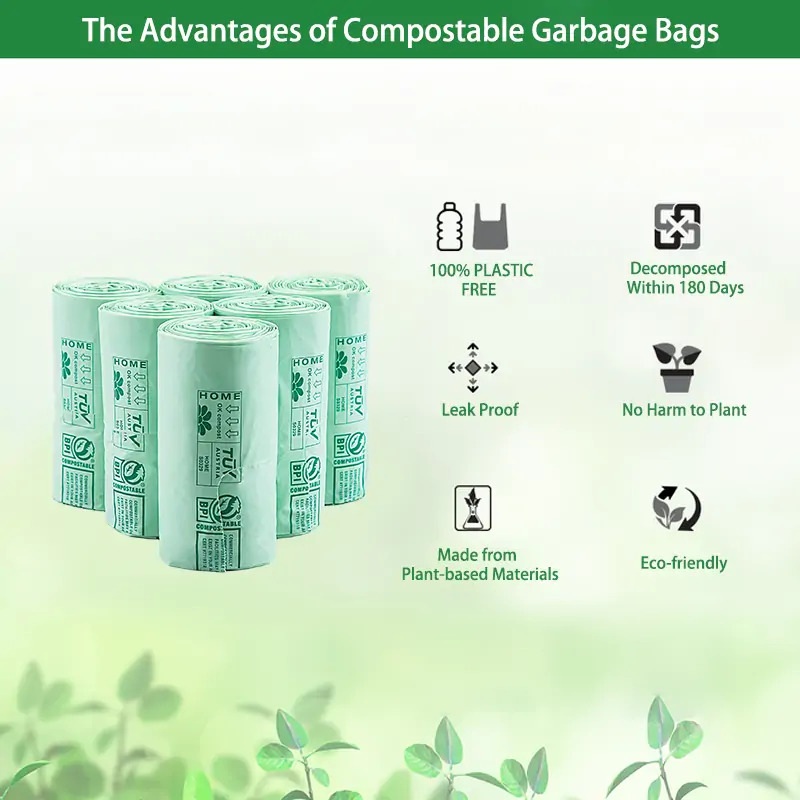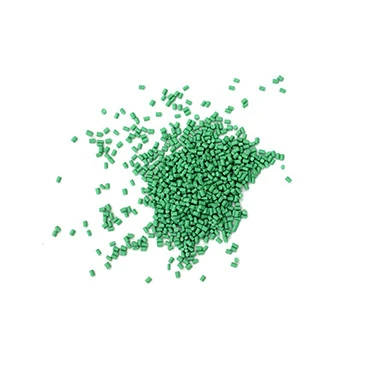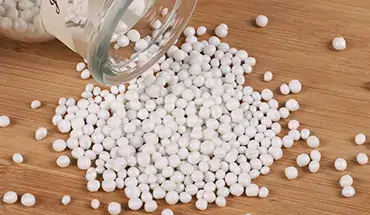In recent years, the pollution of normal plastic bags has drawn the government’s attention around the world. In response to environmental policies, a lot of corporations develop compostable garbage bags. They are popular with consumer groups. But why are they popular? More details will be shown to you.
Compostable Garbage Bags vs Normal Trash Bags
Ordinary garbage bags are usually made from polyethylene (PE) or polypropylene (PP), petrochemical-based materials, which are not decomposed easily, causing long-term adverse impacts on the ecological system. If crops grow on land contaminated by these plastic bags, it will eventually harm human health and even lead to diseases.
The materials of compostable trash bags are mainly plant-based raw materials, such as PLA, cornstarch, and so on. They can be decomposed into water, carbon dioxide, and organic fertilizer under specific conditions (such as temperature, humidity, sunlight, microorganisms, etc.).
To be certified compostable, rubbish bags must be tested by international authorities and meet compostable standards.

The Advantages of Compostable Trash Bags over Normal Trash Bags
- Reliable Sealing
Compostable bags often feature unique sealing strips or self-adhesive closures. This design effectively traps unpleasant odors, especially during warmer months.
- Excellent Load-bearing Capacity
Compostable bags are surprisingly robust. They can easily handle the daily weight of household waste. Don’t worry about tearing or spills.
- Ultimate Convenience
Designed for ease of use, these bags are simple to tear from the roll, knot, and seal. They make garbage disposal more efficient and hassle-free.
- Environmentally Friendly
Made from bio-based materials such as corn starch, compostable garbage bags can break down into water, carbon dioxide and other harmful substances, and they become a great alternative to traditional trash bags.
- Versatile Applications
Due to their excellent performance and superior quality, compostable trash bags are suitable for various industries including household, retail and supermarket, catering, public facilities and scenic areas, agriculture, medical industry, manufacturing, and landfills.

Widely Application Scenarios of Compostable Garbage Bags
-
Household Waste Disposal
In daily life, a lot of garbage is generated every day. Biodegradable garbage bags can easily collect garbage and improve the living environment.
-
Food and Beverage Waste Disposal
In the catering industry, various restaurants generate a large quantity of disposable tableware and food packaging every day. Biodegradable trash bags can be used for collecting and storing takeaway waste and disposable tableware, keeping restaurants clean and reducing plastic pollution.
-
Medical Industry
Compostable garbage bags can be used for the collection of medical waste, ensuring that the waste is disposed of effectively and reducing risks to the environment and human health.
-
Waste Treatment and Recycling Industry
Biodegradable bags are placed in compost or anaerobic digesters along with biomass waste for processing, which can reduce dependence on landfills and generate fertilizer.
In summary, compostable garbage bags are widely used in multiple application scenarios and industries such as household, catering, medical, waste disposal and recycling. With the enhancement of environmental awareness and the increasing support of policies on environmental protection, the future of compostable garbage bags is rather promising.
Ready to make the switch to a more sustainable solution? Explore our range of high-quality, certified compostable garbage bags today!
Contact us for bulk orders or more information.





